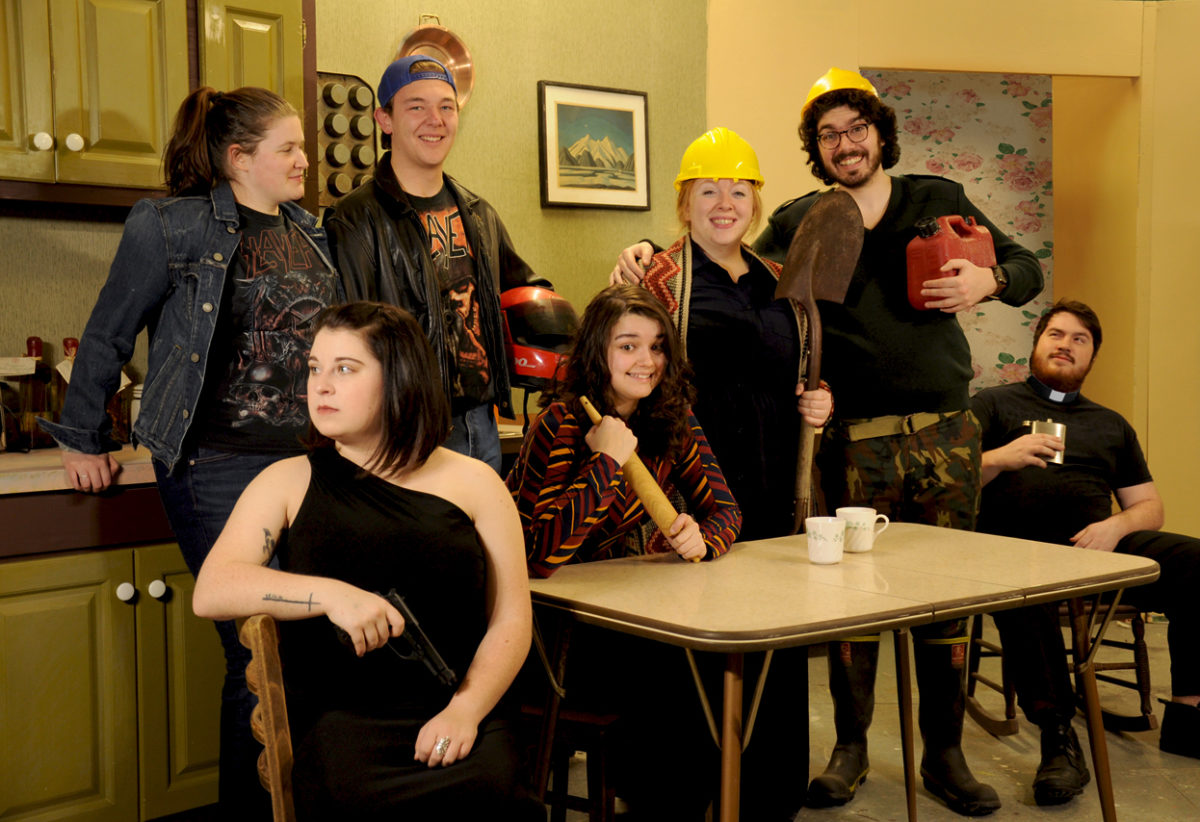Theatre UNB’s production of Better Living appears to be a comedy about a normal Torontonian family, but it turns out to be far more bizarre, yet not untrue to our times; the world can be a strange and scary place.
Better Living is one of George F. Walker’s “East End” plays: A set of three plays which feature overlapping characters living in Toronto’s east end. It is not surprising Walker was compelled to explore these characters multiple times – they are each entertainingly animated and carry intriguing personal histories. In Better Living, three daughters are home to help their mother, Nora (Tilly Jackson), who is endlessly renovating her basement as a means to cope with the threat of her abusive husband, Tom (Aaron Ellis).
Walker has stated his plays have a pulse. At times, the cast unfortunately lacks urgency and falls just behind the musical beat of the script. However Aaron Ellis picks up the pace with a wickedly engaging performance and an irksome gravelly voice.
Tilly Jackson is comical as Nora, and also maintains a depression underneath her tenacious commitment to a glass half-full attitude – a glass which might almost be empty. All the characters act slightly melodramatic or peculiar; but they are living with a father who is anything but “normal.”
Mike Johnson creates another detailed and naturalistic set. The action takes place in the kitchen, with a real fridge and real food that clash with the surreal behavior of the characters. The set contributes an image of the odd existing in the average.
While it is a funny show, it is definitely a dark comedy. It offers a commentary on the relationship between a hostile home and the political instability of the world outside. The play is prefaced as “a comedy about putting your house in order: Make your basement great again!” The phrase resonates a little too close to “Make America great again. With the patriarchal “fascist” Tom, Mary Ann’s (Allyson Roy) high anxiety toward all things, and the women’s struggle against oppression, suddenly the ’80s seem eerily relevant to the political atmosphere of today. The philosophies of endless progress versus relentless chaos are explored in the relationship between Nora and Tom.
Positivity is all Nora has in the face her tyrannical husband, and the play ends with the less than satisfying thought that comedy and positivity are the best remedies against problems that might be forever returning.
Director Len Falkenstein recognizes in the program that the play is a little unsettling in the face of current times. Removing a tyrant can seem hopeless and art might seem useless, but it might be the best measuring-stick for reality. The Canadian Theatre Encyclopedia states the plays of George F. Walker “focus on the efforts of women to better their lives, in defiance of the lousy choices made by men.”
TUNB recognizes that these plays needed now more than ever, delivering a smart and affecting production of Better Living.
Theatre UNB’s production of Better Living ran at Memorial Hall, Feb. 1-4.

